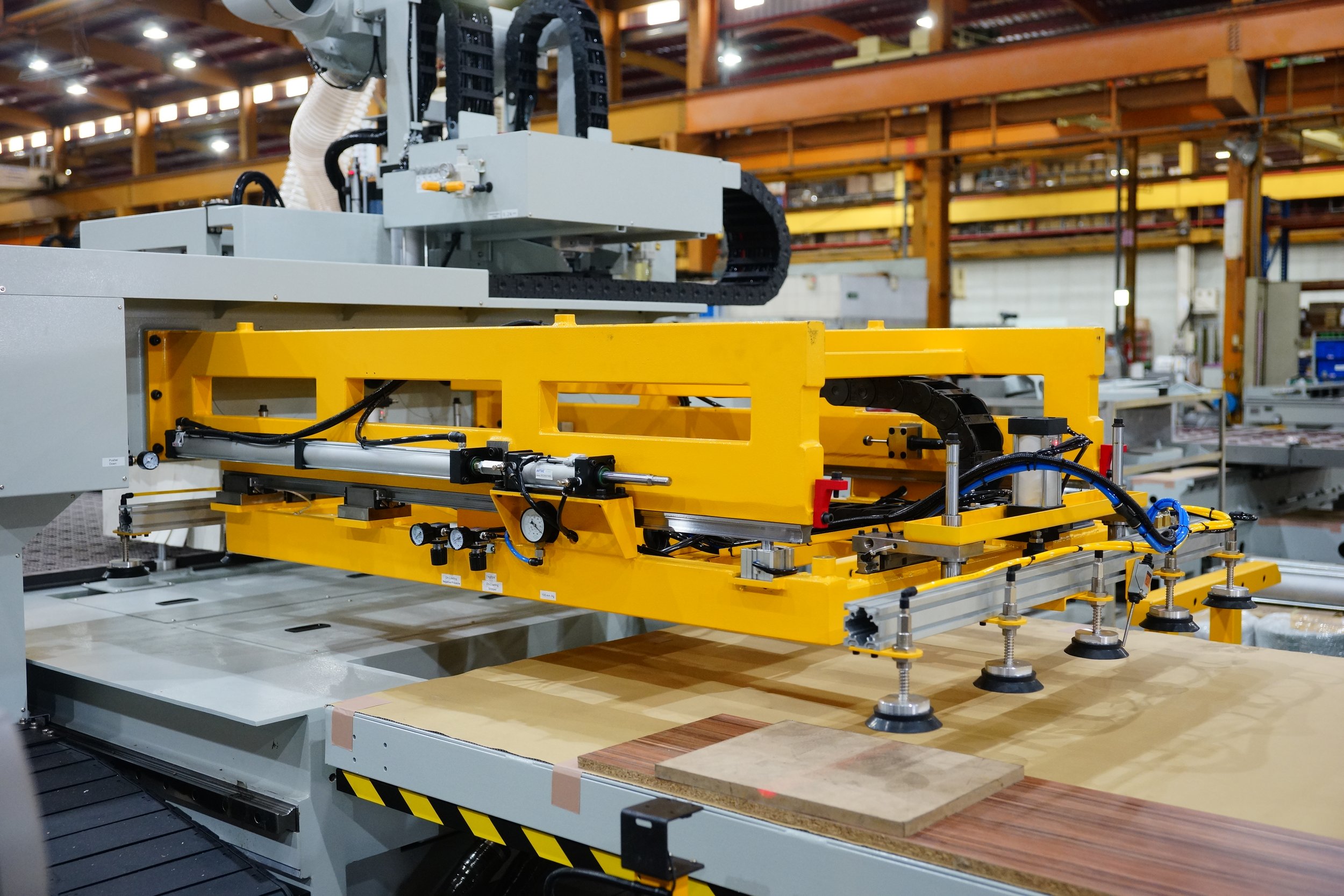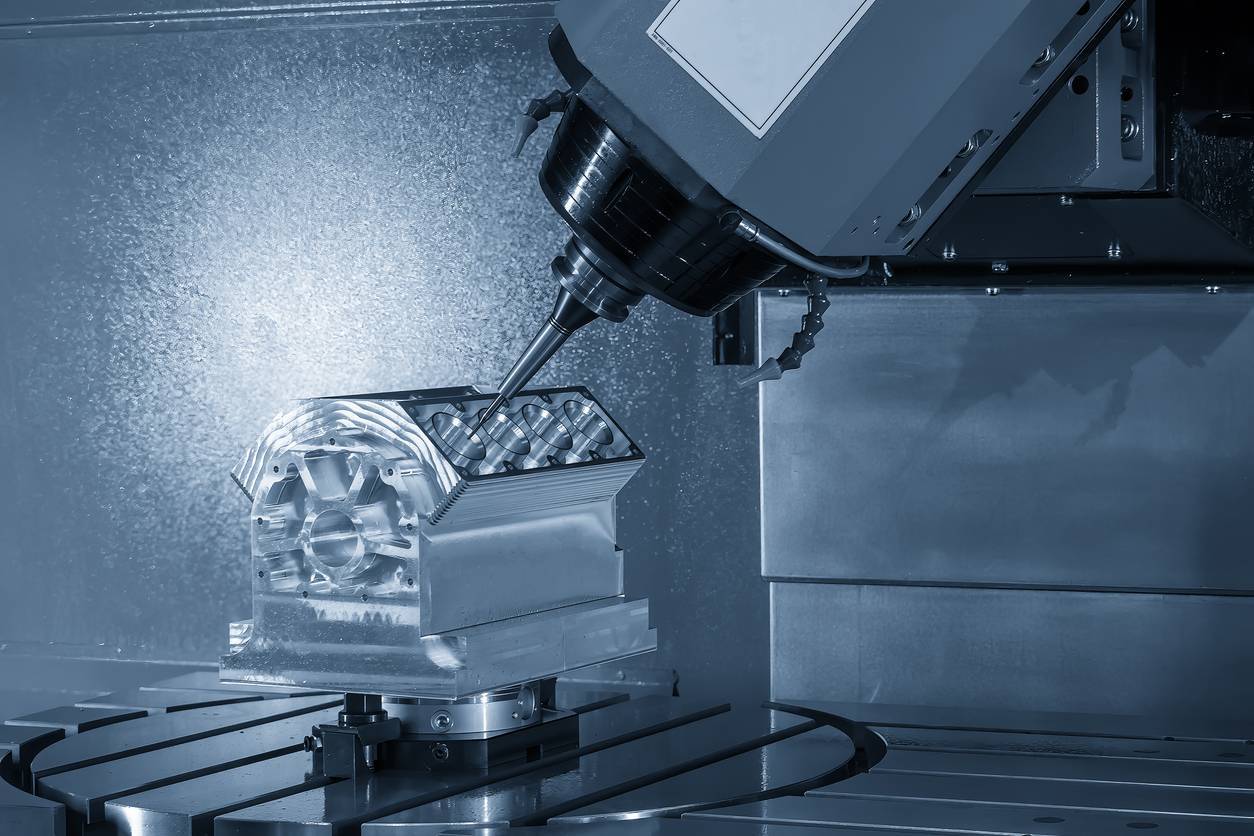How a tool and die maker ensures precision in engineering
Wiki Article
Raise Your Production Quality With Specialist CNC Machining Providers in Milling and Transforming
CNC machining services in milling and turning offer substantial benefits for manufacturing procedures. These processes guarantee accuracy and performance, vital for generating high-quality parts. With sophisticated innovation and skilled machinists, organizations can accomplish elaborate layouts and remarkable surfaces. Comprehending the nuances of these solutions is important for optimizing their advantages. What factors should firms think about when picking the ideal CNC machining companion?Recognizing CNC Machining and Its Benefits
Several making processes exist, CNC machining stands out due to its accuracy and efficiency. This sophisticated production method uses computer-controlled equipments to produce complex components with marginal human intervention. By automating the machining process, it greatly decreases the chance of human mistake, making sure regular quality throughout production runsCNC machining provides many advantages that interest various industries. To start with, it suits complex designs that conventional techniques might battle to achieve. Additionally, the speed of manufacturing is enhanced, enabling quicker turn-around times and boosted outcome. Furthermore, CNC machining is versatile, appropriate for a variety of materials, including metals, plastics, and composites.
Moreover, the process enables for simple changes, making it possible for fast prototyping and modification without considerable retooling. Therefore, organizations can react promptly to market demands, making CNC machining a vital part of modern-day manufacturing strategies.

The Significance of Accuracy in Milling Processes
Accuracy is important in milling processes, as it directly influences the precision of the last item. The choice of products additionally plays a considerable role, influencing how well the machining process fulfills specified tolerance standards. Recognizing these components is crucial for achieving optimal lead to CNC machining.Duty of Precision
Attaining high degrees of precision is critical in grating procedures, as also the smallest inconsistency can bring about significant errors in the end product. Precision in CNC machining directly influences the efficiency, functionality, and long life of the manufactured parts. Precise crushing assurances that dimensions and resistances are met, which is necessary for components that have to fit with each other effortlessly in setting up or run under details conditions. Additionally, the duty of precision encompasses reducing waste and rework, thus enhancing overall production efficiency. Advanced CNC devices geared up with advanced software program and tooling add to acquiring the essential accuracy. By focusing on accuracy in milling, makers can ensure high-grade results that fulfill rigid sector criteria and client expectations.
Product Selection Effect
Material option plays a crucial function in the milling process, influencing both the top quality of the end product and the performance of production. Various materials display unique residential properties such as hardness, tensile strength, and machinability, which straight influence the milling method utilized. As an example, more challenging products may need specialized tools and slower feed rates to stop tool wear and keep precision. Conversely, softer products can be milled at higher rates but may lack durability. Furthermore, the selection of product can affect surface finish and dimensional accuracy, necessitating cautious consideration by manufacturers. Inevitably, choosing the suitable product not only enhances product performance but also enhances the milling process, decreasing waste and enhancing general efficiency.Resistance Criteria Relevance
While the selection of products is vital, adherence to resistance standards is similarly critical in CNC machining processes. Tolerance standards dictate the permitted limits of variation in dimensions, guaranteeing components fit and function properly. In milling and transforming procedures, exact resistances improve product top quality, reduce waste, and decrease rework. When resistances are precisely preserved, producers can attain regular outcomes, which is vital for markets such as aerospace, automobile, and medical gadgets, where precision is critical. Deviations from developed requirements can cause setting up concerns, jeopardized performance, and raised expenses. Understanding and applying proper tolerance standards is basic for any CNC machining service seeking to preserve high production quality and meet customer specs successfully.Enhancing Effectiveness Through Advanced CNC Turning
Advanced CNC turning strategies considerably boost performance in component creation by ensuring high precision in manufacturing. This enhanced precision not just boosts the general quality of the parts produced but also adds to lowered manufacturing time. Because of this, suppliers can accomplish greater output while maintaining rigorous quality criteria.Precision in Component Creation
CNC turning technology has actually revolutionized precision in element creation, allowing producers to achieve exceptional accuracy and efficiency. Utilizing computer-controlled lathes, this sophisticated process carefully forms products right into elaborate designs, making sure tight tolerances that meet requiring specifications. The automation intrinsic in CNC turning decreases human mistake, leading to constantly premium components tailored to particular needs. On top of that, the capacity to swiftly modify digital designs enables quick versions, boosting the personalization of components without sacrificing accuracy. Because of this, industries varying from aerospace to auto benefit considerably from these advancements, as they can generate intricate geometries effortlessly. Inevitably, CNC transforming stands as a cornerstone of contemporary production, driving accuracy and integrity in component production.Reduced Manufacturing Time

Secret Technologies in CNC Machining
Numerous vital technologies drive the efficiency and accuracy of CNC machining, enabling suppliers to create complex get rid of high accuracy. Central to these developments are Computer system Assisted Style (CAD) and Computer System Assisted Production (WEB CAM) software application, which streamline the design-to-production process. CAD permits for complex styles to be produced and adjusted electronically, while CAM translates these layouts right into device instructions.Additionally enhancing accuracy are multi-axis machining facilities, which enable reducing devices to move along numerous axes concurrently, decreasing the demand for multiple configurations - cnc milling services near me. In addition, developments in tooling materials and finishings have actually boosted longevity and efficiency, permitting much better surface area coatings and prolonged device life
Automation innovations, including robotics and intelligent software, assist in real-time monitoring and changes during production, making certain consistency and top quality. Collectively, these modern technologies not only improve manufacturing capabilities however also add to the total reliability of CNC machining solutions.
The Function of Competent Machinists in Top Quality Production
Proficient machinists play an essential function in making certain the top quality and precision of CNC machining production. Their proficiency directly influences the end result of making processes, as they interpret technical illustrations, established up machines, and select appropriate tools for each and every task. By possessing a deep understanding of machining principles, they can make real-time adjustments to optimize efficiency and maintain limited resistances.In addition, skilled machinists employ their analytic abilities to identify and rectify issues during production, protecting against problems and making sure that the end products fulfill strict high quality requirements. Their knowledge with different materials and machining techniques allows them to adapt to diverse project requirements, boosting total effectiveness
In addition, these professionals frequently collaborate with developers and engineers, giving useful insights that add to the continual enhancement of production approaches. Eventually, the significance of skilled machinists in CNC machining can not be overemphasized, as they develop the foundation of high-grade manufacturing operations.
Decreasing Waste and Optimizing Resources
Reliable CNC machining not just relies upon the expertise of proficient machinists but also highlights the relevance of lowering waste and enhancing sources throughout the production procedure. By employing sophisticated technologies and specific shows, manufacturers can reduce page product waste, making certain that every item of raw material is used effectively.Including approaches such as nesting, where parts are arranged to make the most of material usage, can significantly reduce scrap manufacturing. In addition, real-time surveillance of machine efficiency permits instant changes, preventing overproduction and source exhaustion.
Executing sustainable practices, such as reusing steel shavings and using imp source environmentally friendly materials, contributes to both price financial savings and ecological obligation.
With these actions, CNC machining solutions can improve productivity while maintaining top quality standards, inevitably causing a much more successful and lasting operation. By focusing on resource optimization, companies can attain higher efficiency and a reduced environmental footprint in their production processes.
Picking the Right CNC Machining Solution for Your Requirements
How does one establish the most effective CNC machining service for specific job requirements? Selecting the ideal CNC machining solution involves a number of vital considerations. First, task specs, including product measurements, tolerances, and types, should be plainly defined. This ensures that the picked service can satisfy the technological demands of the project.Second, reviewing the provider's experience and experience in the relevant market can supply understandings into their abilities. Examining past jobs and customer testimonials can even more notify the choice.
Third, evaluating the available innovation and equipment is crucial, as advanced equipment typically brings about greater accuracy and performance.
Finally, cost and turnaround time should be thought about to guarantee the service straightens with financial restraints and target dates. By carefully assessing these factors, companies can identify the CNC machining solution that ideal fits their one-of-a-kind manufacturing demands.
Often Asked Inquiries
What Materials Can Be Utilized in CNC Machining?
CNC machining can utilize a variety of products consisting of metals like aluminum, steel, and titanium, along with plastics such as acrylic and nylon, and compounds, giving convenience for various manufacturing applications and industries.For how long Does a Common CNC Machining Job Take?
A regular CNC machining project can take anywhere from a couple of days to a number of weeks, depending on variables such as intricacy, material kind, style specs, and manufacturing quantity. Timelines differ based on project needs and seriousness.Are CNC Machining Provider Eco-friendly?
CNC machining services can be ecologically friendly, especially when utilizing effective processes and lasting materials. Waste decrease and energy-efficient machinery add to a reduced environmental influence, making these solutions a sensible option for eco-conscious production.What Industries Typically Use CNC Machining Providers?
CNC machining services are commonly made use of in various sectors, including auto, aerospace, electronics, clinical devices, and production. These sectors count on accuracy machining for components that call for high precision, efficiency, and repeatability in production procedures.Exactly How Can I Prepare My Layouts for CNC Machining?
To prepare designs for CNC machining, one ought to ensure correct file styles, maximize measurements for tolerance, integrate essential machining functions, and take into consideration material residential or commercial properties. Furthermore, giving comprehensive documents can improve the production procedure's performance and precision.While the option of materials is necessary, adherence to resistance requirements is equally important in CNC machining procedures. Experienced machinists play a necessary duty in ensuring the top quality and precision of CNC machining production. A typical CNC machining project can take anywhere from a few days to several weeks, depending on elements such as intricacy, material kind, layout requirements, and manufacturing quantity. CNC machining solutions can be ecologically pleasant, especially when using effective processes and sustainable materials. To prepare designs for CNC machining, one must ensure proper data formats, optimize measurements for resistance, integrate needed machining functions, and think about product buildings.
Report this wiki page